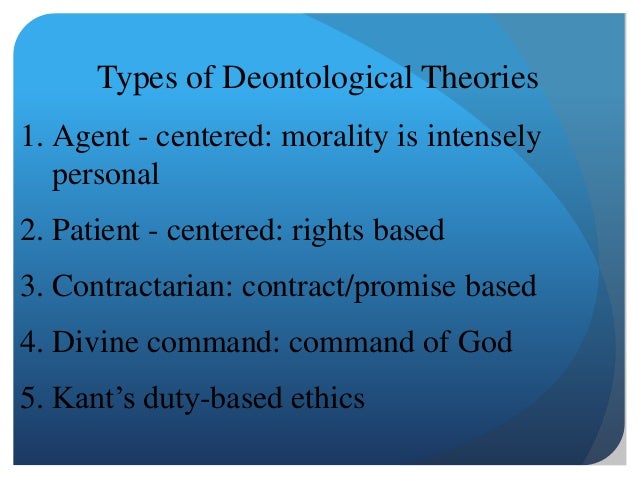
Deontological Theories Of Ethics. First published wed nov 21 2007. Substantive revision fri oct 30 2020. In deontological ethics an action is considered morally good because of some characteristic of the action itself not because the product of the action is good. Deontology or deontological ethics is the branch of ethics in which people define what is morally right or wrong by the actions themselves rather than referring to the consequences of those actions or the character of the person who performs them.

It is sometimes described as duty obligation or rule based ethics. According to immanuel kant goodness is not in consequences of actions but an intrinsic attribute of an action. Deontological ethics in philosophy ethical theories that place special emphasis on the relationship between duty and the morality of human actions. Substantive revision fri oct 30 2020. In moral philosophy deontological ethics or deontology from greek. Deontological theories necessarily generate categorical imperatives that is duties independent of any theory of good.
δέον obligation duty λόγος study is the normative ethical theory that the morality of an action should be based on whether that action itself is right or wrong under a series of rules rather than based on the consequences of the action.
In deontological ethics an action is considered morally good because of some characteristic of the action itself not because the product of the action is good. The word deontology derives from the greek words for duty deon and science or study of logos. Deontological theories necessarily generate categorical imperatives that is duties independent of any theory of good. Deontological or duty based ethics the chief characteristic of deontological theories is. In contemporary moral philosophy deontology is one of those kinds of normative theories regarding which choices are morally required forbidden or. Rationality of human beings enables them to weigh their actions before doing them.